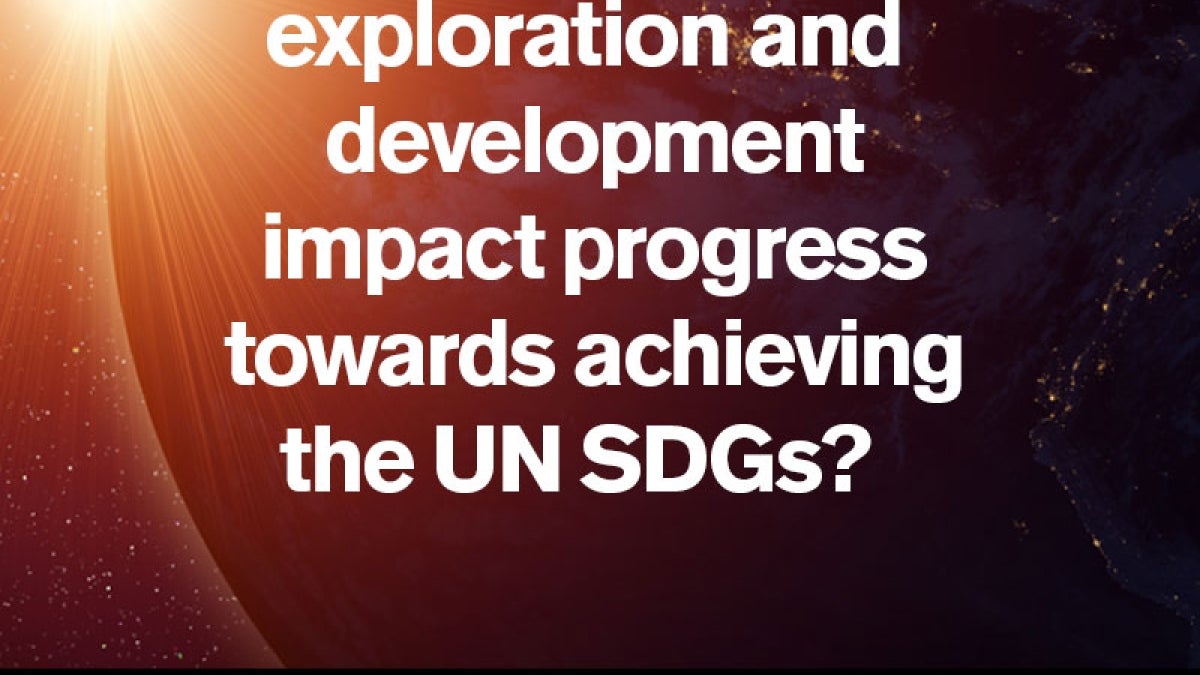The Arizona State University Interplanetary Initiative pilot project SpaceHACK for Sustainability will host its first hackathon March 24–25 to bring social justice-conscious teams together to address social inequities, sustainable development and environmental justice issues.
The event builds on current research exploring the impact of the space industry on our achievement of the U.N.’s Sustainable Development Goals.
“Satellite data is having a tremendous impact on global efforts to address both climate change and social problems, such as poverty or access to clean water," said Eric Stribling, project lead for SpaceHACK for Sustainability. "This hackathon has been designed to make these seemingly complex technologies accessible to students and to involve them in real-world issues, where they can make an actual contribution."
During the event, participants will work in multidisciplinary teams to explore how satellite Earth observations and remote sensing technology from space can be used to better understand and address social inequities, sustainable development and environmental justice issues here on Earth. With guidance from top industry and academic leaders, participants will have the opportunity to focus on one of three engaging tracks with the chance to compete for prizes:
Climate Impacts on Brazilian Favelas: Leveraging space to assess worsening natural disasters disproportionately impacting the most marginalized in Brazil.
Sustainable Groundwater Usage in Nepal: Using space to see and govern groundwater.
Wildfire Risk and Social Disparity at the Wildland Urban Interface: Monitoring wildfires from space to help us to understand fire risk inequities and social disparity on Earth.
The Interplanetary Initiative is partnering with Planet, a provider of global daily Earth data, for the event. Planet will provide access to their visual data, which will allow participants to create maps and spatial correlations between the visual data and other data important for addressing the aforementioned three challenges. For example, if a team working on the Nepal track notices that certain crops are planted when the water table measurements are low, that finding can help inform forecasting efforts.
All participants will learn the basics of Google Earth Engine and use real satellite data from multiple sources to pull together insights around one of the above problem statements.
The event runs from 2 to 11:30 p.m. on March 24 and from 9 a.m. to 8 p.m. on March 25 on the third floor of Hayden Library on ASU’s Tempe campus and virtually. It is hosted by the ASU Interplanetary Initiative, Hayden Library and Planet in collaboration with faculty in the School for the Future of Innovation in Society.
Registration is now open. Sign up to join a team today.
More Science and technology

ASU to host 2 new 51 Pegasi b Fellows, cementing leadership in exoplanet research
Arizona State University continues its rapid rise in planetary astronomy, welcoming two new 51 Pegasi b Fellows to its exoplanet…

ASU students win big at homeland security design challenge
By Cynthia GerberArizona State University students took home five prizes — including two first-place victories — from this year’s…

Swarm science: Oral bacteria move in waves to spread and survive
Swarming behaviors appear everywhere in nature — from schools of fish darting in synchrony to locusts sweeping across landscapes…


